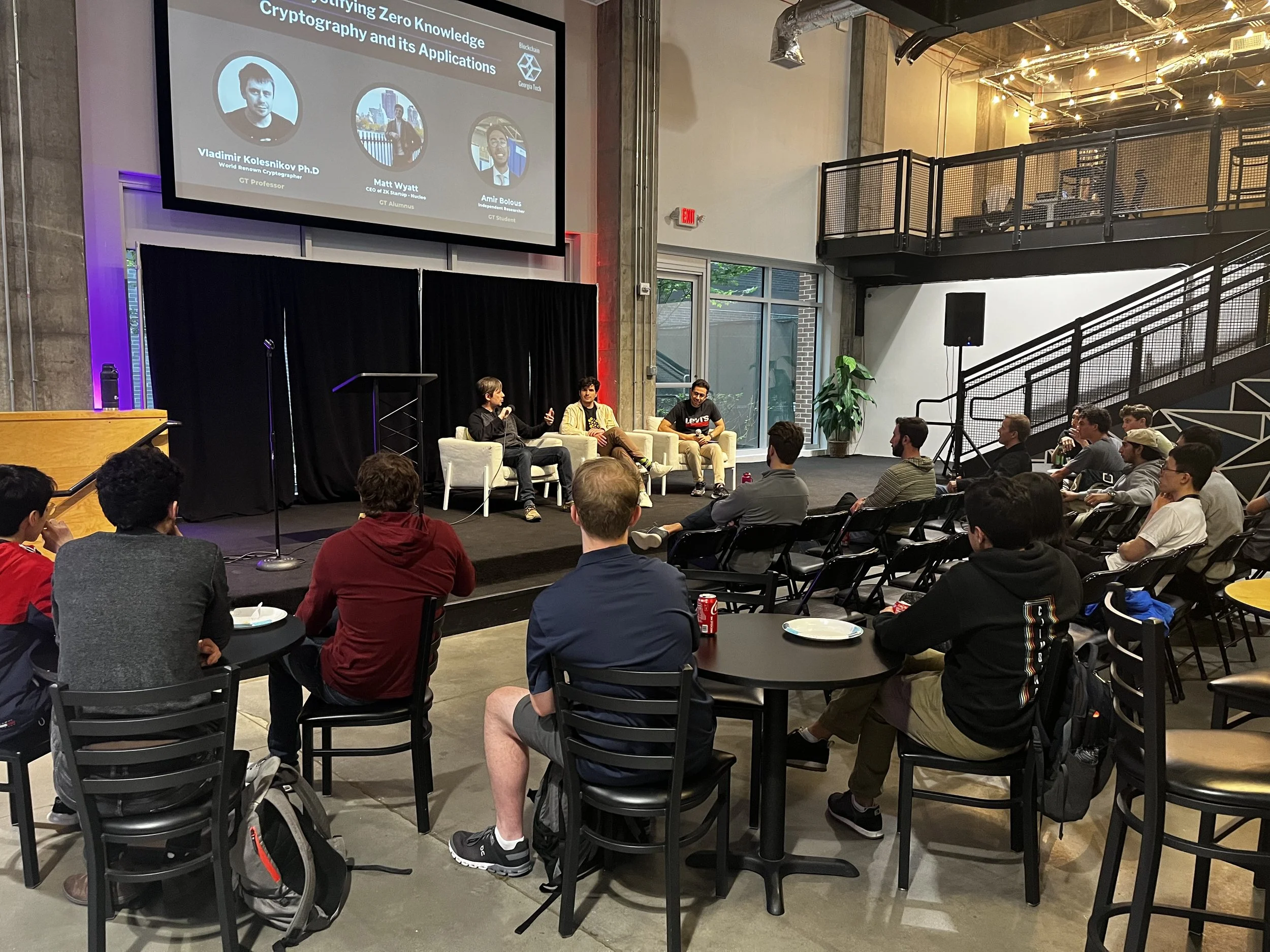Zero Knowledge Cryptography Demystified at Showcase
We teamed up with local startup 404 DAO and student group Blockchain at Georgia Tech yet again to host an informative event focused on zero knowledge (ZK) cryptography, inviting attendees to discuss this cutting-edge technology and gain insight into its current and future applications.
Hosted at The Clubhouse, the Showcase: Demystifying Zero Knowledge - Cryptography and its Applications featured a panel of esteemed Georgia Tech (GT) community members addressing what exactly the technology is, how it’s being operated currently, and the usage of it in the future:
Dr. Vladimir Kolesnikov, Associate Professor at Georgia Tech’s College of Computing, and renowned cryptography researcher, shared his expertise on secure computation and crypto techniques in practice. He discussed how his research focuses on improving and applying the aforementioned, including a Department of Energy (DOE)-funded project exploring private computation on public blockchains.
Matthew Wyatt, GT alumni and Co-Founder and CEO of Nucleo, a fast-paced Web3 startup building privacy infrastructure for organizations using ZK layer-1s, discussed the technology from this unique perspective. Basically, it’s a cryptographic protocol that allows a party to prove a statement or data is true without revealing any information and assures privacy and security while adding capacity to blockchains by reducing the computational load needed to verify transactions and other data stored on-chain..
Amir Bolous, a current GT student, independent researcher, and former engineering intern at a16z crypto, a venture capital fund that invests in crypto and Web3 startups, offered a fresh perspective on zero knowledge cryptography and its various applications.
As the event concluded, attendees walked away with increased knowledge and a deeper understanding of this exciting technology – and new connections with people who operate in this pioneering industry. That sounds like a win-win to us!
Would you like to learn more about this emerging technology? Let us know in the comments below.

